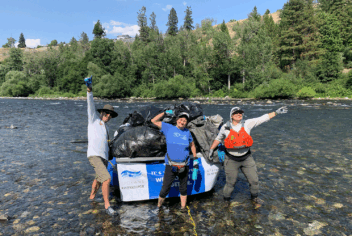During the current hard insurance market, defined as a market with increasing insurance rates and decreased availability of coverage, nonprofits are finding that coverage provided by commercial carriers is not consistent, affordable, or appropriate.
Furthermore, nonprofits’ contracts require certain types of coverages and policy limits, such as sexual abuse liability coverage, so when commercial insurance companies no longer offer the coverage policies nonprofits need, it can leave them in violation of contract terms with federal, state, and local municipalities.
The few commercial insurance companies that have provided sexual abuse liability coverage to community-based nonprofit organizations in the past are currently in a fit of angst about the extension of statutes of limitations that grant victims of sexual abuse an expanded window in which to bring their claims into court. This is what’s known as “social inflation” in the insurance industry.
For the past few years, many commercial carriers have opted not to renew existing sexual abuse and molestation coverage for nonprofits — and sometimes the complete package of insurance as well. Most other carriers have been lowering the limits of coverage they will offer and imposing large, self-insured retentions and significant premium increases.
Some insurers have even abandoned the social service market completely, citing the impact of these new laws. Are these actions justified based on evidence of more frequent sexual abuse claims against community-based nonprofits?
The answer is no.
Over the course of the past 10 years, the frequency of sexual abuse claims emanating from community-based nonprofits has not changed, despite changes to the laws providing more opportunity for claims to be brought.
The nonprofit insurer I lead has collected this data through insuring more than 22,000 community-based nonprofit organizations, rather than the larger types of institutions — colleges and universities, churches, and national youth organizations, for example — that have been in the news recently.
Why then are commercial insurance companies taking such drastic action? Our team concludes that the insurers had not been appropriately underwriting and pricing the risk of sexual abuse claims for community-based nonprofits all along.
Additionally, they may be unable to adequately differentiate the risks associated with larger national organizations versus those of community-based nonprofits, such as homeless shelters, food banks, affordable housing, childcare, and even foster family agencies.
In general, community-based nonprofits don’t have bureaucracies that are able to suppress reporting of claims and protect abusers. As such, they don’t have the ability to cover up wrongdoing — at least not for long. When something bad happens, it typically rises to the surface soon after it happens. Certainly, there are some latent claims that emerge years after they occur in community-based nonprofits, but those are the exception, not the rule.
As a response to complaints filed with one state’s department of insurance about the inability to find appropriate insurance coverage, the insurance regulator told one nonprofit to just to wait a year, predicting that prices would come back down and coverage would be more available. Regulators are unable to protect consumers from market failures such as this.
Nonprofits that have to wait for rates to come back down to afford coverage are forced to go without. Insurance is a lot like electricity. Not having it changes everything.
Commercial insurance companies persist in these damaging cycles of price and availability swings while they search for market share. Instead of taking accountability for their own lack of discipline and unwillingness to adhere to responsible underwriting, commercial carriers point to changes in the legal environment — so-called “social inflation” — to cover up for their own poor business practices.
In the end, nonprofits and the communities they serve are the ones who lose.
Pamela E. Davis is founder and CEO of NIA, a group of nonprofit insurers exclusively serving 501(c)(3) organizations.





